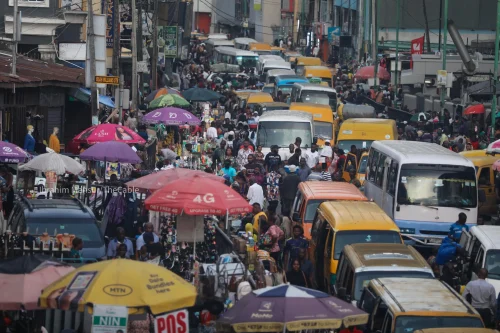Wasting Nigeria’s Wealth
I n Wealth of Nations, the 18th Century economic classic, Adam Smith (1723-1790) postulated that “by selling product[s] that people want to buy, [entrepreneurs] make money. While they are engaging in their enterprises…they are also providing [services]. Such a system creates wealth not just for the [entrepreneurs], but for the nation as [a] whole when that nation is populated with citizens working productively.” A scan through the Nigerian socioeconomic landscape impresses one that the wealthy and a worrisome percentage of the middle class are competing with the residents of the cliffhanger chateaus of the French Riviera and the magnificent mansions on the sprawling landscapes of Bel Air, Hollywood. The sad and rather instructive contrast is that whereas at the French Riviera and in Bel Air the residents of the mansions share the same socioeconomic status with their neighbors, the Nigerian noveau riche live in neighborhoods that snugly fit into the globally accepted classification of a ghetto where their homes stick out like a sore thumb. That a worrisome percentage of the wealth of Nigeria is tied to unproductive and grandiose display of opulence and wasteful consumption is visible in every Nigerian community and social gathering: the “Taj Mahals” exist side by side mud-and-thatch huts therefore rudely proclaiming the socioeconomic disparities of the Nigerian society; this has been captured in poetry and canvass as Distant Neighbors. Debo Adesina, offers that “a lot of [Nigeria’s] capital is tied down in waste through building [homes] that are not needed [and] acquiring cars that are unnecessary. The answer to development lies in job creation and poverty alleviation.” If government pays heed to the essence and import of this statement and works towards correcting this misplaced priority in the society, the unemployment line will shorten and poverty will be reduced.
In a paper I presented at the 2008 Isaac Boro Memorial Lecture at the International Conference Centre, Abuja, I drew the attention of the nation to the fact that the then volatility of the Niger Delta must not be seen as a Niger Delta phenomenon; rather, that it should be seen as a national crisis, which the Niger Delta youths have reacted to through a window of expression that was convenient for them. I furthered by warning that if the social malaise of unemployment, poverty, illiteracy etc in Nigeria were not addressed urgently, that the youths of other parts of the country would, sooner than later, also find convenient windows for expressing their frustration. Stories abound of people who borrowed to lobby for public office or buy forms to contest elective positions; it is generally known that within their first term of four years a lot of them acquired such wealth that cannot be explained within the context of their legitimate income. Meanwhile, in their communities where they erect humongous structures, there is no pipe-borne water, no electricity, and the streets are not macadamised except that which leads to their home.
During a previous administration, a political office holder erected a N100mn marble house at a time the Naira was two to the dollar; he put two lions in it and, legend has it that, each ate two goats per day in a society where and time when the average family could not, and still cannot, afford the cumulative equivalent of one goat in six months; in 2007, the house was up for sale at the asking price of N95mn; today, the house is still up for sale and the asking price has dropped drastically in real terms now that the value of the Naira vis-à-vis the dollar at its lowest ever.
In a more recent episode, another public officer allegedly built a N3bn home within four years of being in office while his community lacked in social infrastructure.
Cases such as these abound across the nation. The wealth of a nation does not consist of unproductive and wasteful consumption; rather, it derives from people producing and selling goods and services that others want and are able and willing to purchase. Chinua Achebe had offered that Nigerians are “enormously talented [and the nation is] prodigiously endowed;” Again, Nigeria has an estimated population of more than 160 million citizens who are globally acclaimed to be brilliant, enterprising, resourceful and hardworking; given the advantage of access to the marketplace of the ECOWAS subregion, all that is required is to put this workforce to productive service towards economic prosperity and the greater good of the nation. The essence of Adam Smith’s postulate of our introduction is hinged on the phrase: “[a] nation…populated with citizens working productively.” Are the leaders of Nigeria listening to this two hundred and thirty-nine years old admonition? What about the electorate and the citizens? Is anyone listening? Anyone at all?








